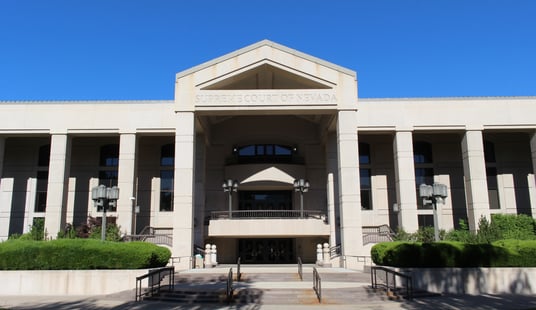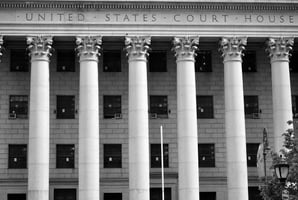Nevada Supreme Court Lets Donor-Advised Fund Ignore Donor's Advice
This article was originally published in May 2011 issue of Estate Planning Journal.

In addressing an issue of first impression, the Nevada Supreme Court held that a charity could ignore all donor recommendations and use donor-advised funds as its directors determined with absolute impunity.
A recent decision by the Nevada Supreme Court is the first to address the issue as to what rights, if any, a donor has when the sponsoring charity of donor-advised funds uses the funds other than based on the donor's recommendations. Although it determined that the charity in this case breached its duty of good faith and fair dealing by totally ignoring the donor's recommendations and using donor-advised funds only as its directors determined, the Nevada Supreme Court held that the donor was not entitled to any remedy because he had given up control over his contribution for tax purposes under a standard form of donor-advised fund agreement. In the end, therefore, the directors of the sponsoring organization were allowed to use the donor-advised funds solely as they determined, which included paying themselves substantial compensation, paying legal fees to fight the donor, and sponsoring celebrity golf tournaments at lavish resorts, all with absolute impunity.
Background
In Styles v. Friends of Fiji, 1 a donor established a $2.5 million donor-advised fund with a charity known as Friends of Fiji (FOF), a Nevada nonprofit corporation based in Danville, California, pursuant to a standard form of donor-advised fund agreement. 2 Rather than approving the donor's recommendations for funds to be distributed from his donor-advised fund to various bona fide charities, including a recommended distribution to the William J. Clinton Foundation to support its Haiti relief efforts, FOF refused to distribute the donor-advised funds to any charity recommended by the donor. Instead, the two directors of the organization used such funds for their own purposes, which included paying themselves over $600,000 in compensation, expending approximately $500,000 in legal fees to fight the donor himself over the use of the funds, sponsoring celebrity golf tournaments at a lavish resort, transferring hundreds of thousands of dollars to another entity created and controlled by them, and buying penny stocks.
After a two-day trial, the Nevada District Court held that FOF breached certain specific terms of the donor-advised fund agreement and, moreover, "that the failure [of FOF] to attempt in any way to satisfy [the donor's] charitable goals is contrary to the intention and spirit of the [donor-advised fund] agreement and thus in violation of the implied covenant of good faith and fair dealing." Among the specific breaches of the donor-advised fund agreement, as determined by the Nevada District Court in its Findings of Fact and Conclusions of Law dated 12/11/2007, were the following:
- (1) FOF failed to provide quarterly reports.
- (2) FOF failed to disseminate fund reports, special mailings, annual reports, information on special events, or have any personal contact with the donor.
- (3) FOF used the donor's contribution "for charitable purposes unrelated to those recommended by [the donor] and without consulting [the donor]."
- (4) Although the donor-advised fund agreement required FOF to take all actions that were necessary to maintain its public charity status, "Friends of Fiji decided not to take those actions and instead the IRS determined that it was a private foundation."
Notwithstanding the determination that FOF had, in essence, acted badly, on the basis of the donor giving up all control over the funds for tax purposes, the trial court refused to award any remedy to the donor, thereby allowing FOF to ignore completely the donor-advised fund agreement and all donor recommendations with absolute impunity. The Friends of Fiji case was appealed to the Nevada Supreme Court on the basis that a remedy should have been awarded to the donor in the form of FOF transferring funds to another charity to create a $2.5 million donor-advised fund for the donor, which is all that the donor had originally sought when he initially contributed funds to FOF pursuant to a donor-advised fund agreement.
Nevada Supreme Court affirms
Although the Nevada Supreme Court recognized that the trial court "determined that FOF failed to attempt in any way to satisfy Styles' charitable goals, and thus that it breached the implied covenant of good faith and fair dealing, it concluded that Styles failed to prove damages and that his claim failed." 3 In its decision, which came more than three years following the trial court determination, the Nevada Supreme Court stated that "the district court properly determined in accordance with the [donor-advised fund's] express terms that Styles gave up any interest in the money when he made the unrestricted gift to FOF, allowing FOF the discretion to reject any of his recommendations for the donation's use."
The court emphasized that Styles' intent to give up all control over the donor-advised funds was shown by his claiming a charitable income tax deduction, with the court citing case law holding that a charitable income tax deduction requires the surrendering of all control. The court stated that "while damages may be awarded when a party breaches the implied covenant of good faith and fair dealing, here, the district court, after reviewing the testimony and evidence, including the donor-advised fund agreement, concluded that Styles suffered no damages because once he made the unrestricted gift, he no longer had any interest in or control over the donation. That conclusion is legally sound and supported by substantial evidence." Thus, despite determining that FOF acted in bad faith by ignoring the donor's recommendations and the donor-advised fund agreement, the Nevada Supreme Court held that the directors of FOF were allowed to use the donor-advised funds solely as they determined without regard to any donor recommendations, all with absolute impunity.
Effect of decision
Because the vast majority of charities sponsoring donor-advised funds, including the nation's approximately 700 community foundations, are prudent and conservative and make their donors their number one priority, the issue raised in Friends of Fiji is clearly not a widespread problem, and the Friends of Fiji case should be considered an outlier. But, it is a case of first impression and shows, at least in the opinion of one state supreme court, that donor-advised funds can be used by the sponsoring charity wholly without regarding to donor recommendations and for purposes determined solely by the charity's directors.
This case, therefore, raises an issue regarding the potential vulnerability of donor-advised funds in situations where a sponsoring organization of donor-advised funds declares bankruptcy, 4 encounters financial difficulty, shuts down its donor-advised fund program, or, even worse, simply seeks to take advantage of a donor. Thus, donors should at least be aware of the potential risk they take when entrusting their money to an organization that offers donor-advised funds, and charities that oversee such funds should be prepared to answer questions in light of the Friends of Fiji decision. Moreover, the Friends of Fiji case highlights the need for a donor considering establishing a donor-advised fund to know:
- The prospective donee charity.
- Its board of directors.
- Its financial status.
- Its investment policy and strategy.
- The nature of its activities.
- Its donor-advised fund program history.
- Its reputation for dealing with donors.
Was court's reliance on "control" for tax purposes correct?
The Nevada Supreme Court based its conclusion on the donor giving up control for tax purposes, yet the premise that "control" for tax purposes should have been the determining factor is questionable. A donor who creates an endowment at a university, for example, clearly gives up control of those funds for tax purposes, but that does not mean that the university can use the money for whatever purpose it wants. Indeed, the agreement as to the contribution's specific use in furtherance of the charity's purposes must be respected. Similarly, in every case where a restricted contribution to a charity is made for a particular purpose, the donor gives up control of the contributed funds; that likewise does not mean the charity can simply use the contribution for whatever purposes it chooses. It must abide by the restriction imposed by the donor. Thus, just because a donor gives up control of contributed funds for tax purposes does not mean the contribution cannot be restricted for a certain purpose with respect to which the charity must abide.
In the context of a donor-advised fund, the donor clearly gives up control, just as with an endowment or a restricted contribution. Indeed, for tax purposes, a donor-advised fund must be "owned and controlled" by the sponsoring organization, and the donor may retain only "advisory privileges" with respect to the distribution of amounts held in the fund. 6 Furthermore, no charitable income tax deduction is allowed for a contribution to a donor-advised fund unless the donor obtains a contemporaneous written acknowledgement stating that the sponsoring organization "has exclusive legal control over the assets contributed." 7 It would appear, however, that despite the requisite exclusive ownership and control of a donor-advised fund by a sponsoring organization and notwithstanding the decision of the Nevada Supreme Court, a donor-advised fund should be considered sufficiently restricted for the particular purpose of distributing funds to other charities based on only donor recommendations and should not, therefore, be available for use as the directors of the sponsoring organization determine.
Under a donor-advised fund agreement, a contribution is clearly subject to the donor's legal right to make nonbinding recommendations from the donor-advised fund to bona fide charities. Although the donor's legal right is merely to make nonbinding recommendations with respect to a donor-advised fund, it is a legal right, so that the sponsoring organization could not choose to ignore a donor or a donor's recommendation. To the contrary, sponsoring organizations would be free simply to ignore a third-party nondonor and a recommendation made by such third party on the grounds that he or she has no right even to make a recommendation regarding distributions from a donor-advised fund, nonbinding or otherwise.
The donor, however, has a clear and bona fide expectation, based on the language of the donor-advised fund agreement and the accompanying guidelines, policies, or promotional literature, that those recommendations will be honored by the sponsoring organization. This arrangement, as specifically prescribed by the donor-advised fund agreement and related program materials, clearly contemplates that donor-advised funds will not be used by the sponsoring organization for its general support, but will be restricted to making grants to other charities based only on the recommendations of its donors, subject only to the final authority of the sponsoring organization to approve or reject such recommendations.
The only indication in the agreement establishing a donor-advised fund, or the related program materials, that a donor-advised fund will ever be used for anything other than donor-recommended grants is the imposition of a fee in connection with the administration of the donor-advised fund, which the sponsoring organization generally indicates will be used for its general support. This is further evidence that a donor-advised fund is not intended to be used for the general support of the sponsoring organization, with the limited exception of administrative fees charged against the donor-advised fund. Moreover, based on the pre-Pension Protection Act of 2006 donor-advised fund legal jurisprudence, the most that any "unconditional" or "unrestricted" language contained in any donor-advised fund agreement should mean is that no conditions or restrictions may be placed on the contribution that would prevent the donor-advised fund from being used in a manner consistent with the charitable purposes of the sponsoring organization's donor-advised fund program.
Prior to the Pension Protection Act of 2006 actually providing a definition of a donor-advised fund under Section 4966(d)(2) , the IRS, in determining whether a sponsoring organization of a donor-advised fund qualified for public charity treatment, relied on the rules applicable to community foundations under Reg. 1.170A-9(f)(11) . Under these rules, a contribution by the donor could not be subject to any "material restriction or condition (within the meaning of §1.507-2(a)(8))." Under Reg. 1.507-2(a)(8), the material restriction or condition applies only to one that prevents the organization "from freely and effectively employing the transferred assets, or the income derived therefrom, in furtherance of its exempt purposes." Thus, treating a donor-advised fund as a fund that is restricted to or conditioned on being used solely to make grants to bona fide charities recommended by a donor would not be considered to create a "material restriction or condition" under these rules, as the purpose of the donor-advised fund program is to make grants to other charities in furtherance of the sponsoring organization's tax-exempt purposes. It was only because of this rule that certain donor-advised fund agreements provided specific language indicating that the contribution be "unrestricted" or "unconditional." This language was never intended, and should be not be relied on, therefore, to permit the sponsoring organization to use a donor-advised fund for its general support.
Consequently, even in the face of "unconditional" or "unrestricted" language within the body of a donor-advised fund agreement, a contribution by a donor to establish a donor-advised fund is clearly not intended to be used for the general support of the sponsoring organization or as determined by its directors. Instead, it is intended to be used based solely on donor recommendations, subject only to the final authority of the sponsoring organization to approve or reject such recommendations so as to ensure that the distribution from the donor-advised fund will be used for proper charitable purposes.
Conclusion
Although the conclusion reached by the Nevada Supreme Court in Friends of Fiji may be subject to debate, it is the only case that has addressed the issue as to what rights, if any, a donor has when the sponsoring charity of donor-advised funds uses the funds other than based on the donor's recommendations. The answer, according to the Nevada Supreme Court, is that the donor has absolutely no rights in this context. Thus, donors should at least be aware of the potential risk they take when entrusting their money to an organization that offers donor-advised funds, and charities that oversee such funds should be prepared to answer questions in light of this case.



